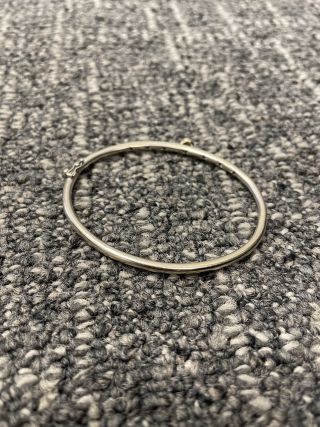Relationships
Hope and Acceptance: Two Paths That Follow Loss
Both paths can help us continue to live and grow.
Posted May 5, 2023 Reviewed by Ekua Hagan
Key points
- Staying angry or ruminating over what one could have done differently is a way of denying the finality of loss.
- Both hope and acceptance are both natural feelings after loss, but it's important to discern when hope is helpful and not a form of denial.
- It's possible to hope for new possibilities while accepting the loss of specific people or opportunities.

Last week, I lost a bracelet. It’s one I wear all the time. One day, I looked down and it was gone. I went through the usual phases of loss—disbelief (“It’s probably tucked under my sleeve!”), anger (“Someone stole it!), bargaining (“If I get it back, I’ll never wear it on the subway again. Never!”), and sadness (“It was a gift from a friend. I miss it.”).
But I didn’t get to acceptance. I kept looking. In my family, I’m known as “The Finder.” When people lose things, I can generally find them. Puzzle pieces, glasses, cell phones—I’m the one. It’s not a psychic gift; I’m just methodical. I trace steps; I open everything. Did you look in every pocket? Every drawer? Every pair of shoes? Most of us spend most of our time in a few indoor spaces, so most things that we think we “lose” turn up in one of them. And so it was with my bracelet. About a week after I “lost” it, I saw something shiny on the floor as I was making the bed and, just like that, it wasn’t lost anymore. If it had been a snake, as my mother would have said, it would have bitten me. In plain view.
The time machine of disbelief
Since the pandemic, I’ve been thinking and writing a lot about loss and grief. As a therapist, my job is generally to help people accept the reality of loss. Too often, they get stuck in what I think of as “the time machine of disbelief." Staying angry with someone who has died, or ruminating over what you could have done differently in a break-up is a way of denying the finality of loss. Feeling sad is one thing—that’s a natural feeling after losing someone or something beloved. But staying angry is another. It keeps alive the hope that the argument or grievance could be resolved, or that you could still kiss and make up. I help people give voice to those feelings so that, gradually, they ebb and eventually subside.
It's not, however, what I did with my bracelet. Now, you could say that I was stuck in the time machine of disbelief. Or, you could say that I didn’t lose hope.
Deciding between hope and acceptance
So when do we accept, and when do we hope? If we never hope, we lose the opportunity to change ourselves and the world. Advocates for everything from civil rights to women’s suffrage to climate protection keep hoping rather than accepting. But not accepting can get us stuck in the past. How do we decide when to accept and when to hope? Here are a few thoughts:
- Only hope for what might be realistically reclaimed. Loved ones who have died are gone. Ex-girlfriends who have married other people are unlikely to return. The job you turned down is probably no longer an option. Many of the rituals of loss, such as burials, help us to understand its finality. Having a community witness the loss, as at a memorial, can also help to affirm its permanence. If you’re not sure if hope is realistic, try talking about it with a few people you love and trust.
- Separate the loss of something specific from the loss of the general. Loss of a romantic partner doesn’t mean that you’ll never have love. Loss of a job doesn’t mean that you’ll never have professional satisfaction. We can hope for new possibilities while accepting the loss of specific people or opportunities. Separating the two can help us understand what to accept and what to keep hoping for.
- How much time does hope take? Sometimes, we can keep hope alive in a corner of our minds while moving on with life. I did not turn my life upside down to look for my lost bracelet; rather, I continued to live life and, every now and then, glanced around for its special shine. Being aware of the space that hope is taking in our lives can help us to understand whether it remains reasonable given the loss.
- See if others will join your hope. Are you hoping for something—like better working conditions, or more respect from others, or a cleaner planet—that others hope for too? That could be a signal that keeping hope alive—or even dedicating yourself to that hope—makes sense for you.
Acceptance and hope are both natural responses to loss. Sometimes we need to embrace one, sometimes the other, and sometimes both. Although there’s no recipe, if we’re honest about the loss and our feelings, we can take the path that will help us to continue to live and grow. And sometimes, when we least expect it, we’ll find what we’ve lost—or something like it—right there, under the bed.


